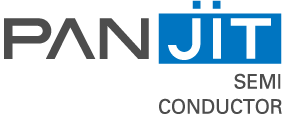In today’s fast-paced world, prolonged sitting, chronic stress, and irregular routines have made cardiovascular disease an emerging health concern in the workplace. As part of its ongoing commitment to employee well-being and sustainable development, PANJIT hosted a “Cardiovascular Health & Daily Wellness” seminar, aligning with the “Social” pillar of ESG to build a more resilient and people-centered work environment.
The seminar featured an engaging and practical session led by Dr. Kuo Feng-Yu, a leading cardiologist from Kaohsiung Veterans General Hospital, in collaboration with the Fuyuan Biotech Alliance. Through professional medical insights and real-life health strategies, the session offered a holistic view of cardiovascular risk prevention, healthy habit formation, and the clarification of common health misconceptions.
Seminar Highlights:
• The Hidden Threats of the “Three Highs”
How hypertension, high cholesterol, and high blood sugar silently impact cardiovascular health.
• From Diet to Exercise: Creating a Sustainable Wellness Rhythm
Dr. Kuo emphasized building a healthy foundation rooted in consistency, balance, and stability.
• Myth-Busting with Evidence-Based Medicine
Is a pain-free heart a healthy one? Can exercise alone prevent heart disease? Dr. Kuo broke down these myths with scientific clarity.
Dr. Kuo reminded everyone:
“Health begins with the small choices we make each day. With greater awareness, cardiovascular risks can be effectively managed.”
A Culture of Health Is a Foundation of Sustainability
At PANJIT, ESG is not just a strategic framework—it is a guiding value system. Among its core tenets, employee health and well-being are recognized as essential drivers of corporate resilience. From wellness seminars and a supportive workplace environment to daily lifestyle initiatives, PANJIT is actively cultivating a “happy and healthy workplace” culture that begins internally and extends outward.
This seminar not only provided employees with practical and applicable knowledge, but also deepened the organization’s collective understanding of self-care, preventative medicine, and shared health responsibility—strengthening the bond between sustainability and corporate care.

